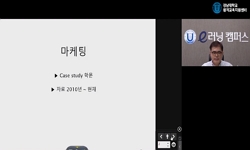본 연구는 물류가 ‘마케팅의 수단’이라는 관점에서 물류마케팅의 전략적 수립을 위한 기초적인 틀을 재정립하는데 그 의미가 있다. 일반적으로 마케팅은 생산자가 상품 혹은 용역을 소비...
http://chineseinput.net/에서 pinyin(병음)방식으로 중국어를 변환할 수 있습니다.
변환된 중국어를 복사하여 사용하시면 됩니다.
- 中文 을 입력하시려면 zhongwen을 입력하시고 space를누르시면됩니다.
- 北京 을 입력하시려면 beijing을 입력하시고 space를 누르시면 됩니다.
https://www.riss.kr/link?id=A108012241
-
저자
이재은 (신한대학교)
- 발행기관
- 학술지명
- 권호사항
-
발행연도
2020
-
작성언어
Korean
-
주제어
물류마케팅 ; 리드타임 ; 공급체인 ; 물류서비스 ; 고객만족도 ; logistics marketing ; lead time ; supply chains ; logistics services ; customer satisfaction
-
KDC
300
-
자료형태
학술저널
-
수록면
7-11(5쪽)
- 제공처
-
0
상세조회 -
0
다운로드
부가정보
국문 초록 (Abstract)
본 연구는 물류가 ‘마케팅의 수단’이라는 관점에서 물류마케팅의 전략적 수립을 위한 기초적인 틀을 재정립하는데 그 의미가 있다. 일반적으로 마케팅은 생산자가 상품 혹은 용역을 소비자에게 유통시키는 것과 관련된 모든 활동으로 정의된다. 이는 기업이 이윤창출을 위해 생산된 제품을 얼마나 많은 사람들에게 판매했느냐에 따라 영향을 받기 때문이다. 최근 코로나19의 영향으로 전 세계에 있는 소비자들의 라이프스타일이 크게 바뀌고 있어 기업들은 기존의 생산과 판매방식과는 다른 형태로 ‘포스트코로 나’에 따른 전략을 수립해야 한다. 코로나19가 진정되고 나면, 소비심리 또한 소비재별로 그 회복 양상이 다르게 나타날 것으로 예상된다. 무엇보다 물류비용의 절감은 기 업의 경쟁력 향상을 위한 주요 요인이기 때문에 물류의 리드타임을 줄이고, 공급체인의 효율성과 유연성을 늘려 고객만족도를 높이는 것이 중요하다. 따라서 물류서비스의 질 향상 및 확대를 위한 물류시스템의 구조개선을 위해 차별화 되고, 기술혁신이 중심이 되는 디지털 물류에 의한 비즈니스모델을 구축하여 새로 운 성장의 기회로 삼아야 할 것이다. 또한 공급망 안에서 생산, 운송, 보관, 하역, 유통, 그리고 마케팅에 이르는 전 과정이 유기적 관계를 형성하는 범위의 물류마케팅을 체 계화시켜야 한다.
다국어 초록 (Multilingual Abstract)
The purpose of this study is in redefining the basic framework to establish strategic logistics marketing based on the perspective that logistics is a ‘means for marketing.’ Marketing is generally defined as all activities of a producer related to...
The purpose of this study is in redefining the basic framework to establish strategic logistics marketing based on the perspective that logistics is a ‘means for marketing.’ Marketing is generally defined as all activities of a producer related to distributing products or services to consumers. Companies are influenced by how many products manufactured to make profits have been sold to people. As the lifestyle of consumers around the world is changing drastically because of COVID-19, companies must establish ‘post-COVID-19’ strategies that are different from conventional production and sales methods. Once the COVID-19 pandemic subsides, the consumer sentiment is expected to recover in different ways for various consumer goods. Above all, the reduction of logistics expenses is a primary factor for increasing corporate competitiveness. It is important to increase customer satisfaction by reducing the logistics lead time and improving the efficiency and flexibility of supply chains. Accordingly, companies would have to seek new growth opportunities by building a differentiated business model based on digital logistics accompanied by technological innovation to increase the quality of logistics services and expand them. Companies must also systematize logistics marketing, where the entire process within the supply chain, including production, transportation, storage, loading, distribution, and marketing, forms an organic relationship.
목차 (Table of Contents)
- 요약
- Abstract
- I. 서론
- II. 이론적 배경 및 가설 설정
- 1. 물류마케팅
- 요약
- Abstract
- I. 서론
- II. 이론적 배경 및 가설 설정
- 1. 물류마케팅
- 2. 물류마케팅과 물류혁신
- III. 융합물류현황 및 물류혁신사례
- 1. 국내·외 물류혁신의 현황
- 2. 국내물류혁신사례
- IV. 결론
- 참고문헌
동일학술지(권/호) 다른 논문
-
어려운 브랜드 확장은 어떻게 해야 하는가?: 조절 초점의 효과
- 한국콘텐츠산업학회
- 최기하
- 2020
-
- 한국콘텐츠산업학회
- 전기흥
- 2020




 eArticle
eArticle






